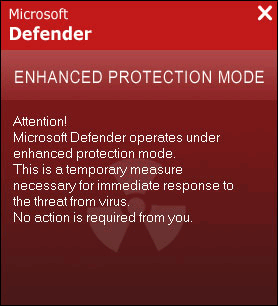Nano Search Browser Extension
The Nano Search is a browser extension designed to offer users a privacy-focused search engine experience. However, it functions as a browser hijacker, thereby modifying browser settings and causing redirects. Beyond these intrusive actions, there is a significant probability that Nano Search engages in monitoring users' online activities, potentially compromising their privacy by spying on their browsing behavior.
Be Careful with Intrusive Applications Like the Nano Search Browser Hijacker
Browser hijackers commonly set promoted websites as default search engines, homepages and new tab pages in browsers. This results in redirects to the endorsed Web page whenever a new browser tab or window is opened or a search is entered into the URL bar. Typically, these browser-hijacking programs promote fake search engines that cannot provide genuine search results, leading users to legitimate Internet search websites through redirection.
In the case of the Nano Search, while it does modify browser settings, it differs from typical browser hijackers by generating redirects that directly land on the legitimate Bing search engine. The specific redirects may vary, based on factors such as user geolocation.
Moreover, browser hijackers often employ persistence-ensuring techniques, such as blocking access to removal-related settings or undoing user-made changes, to hinder browser recovery.
Additionally, software falling under this classification, including the Nano Search, tends to incorporate data-tracking functionalities. This may involve capturing information such as visited URLs, viewed webpages, entered search queries, Internet cookies, usernames/passwords, personally identifiable details and even credit card numbers. This sensitive data can be exploited for profit through activities like selling it to third parties or other forms of misuse.
Browser Hijackers are Rarely Installed by Users Knowingly
Browser hijackers are rarely installed by users knowingly due to several reasons related to their deceptive tactics and stealthy distribution methods. Here are some key factors:
- Disguised Installations:
- Browser hijackers often come bundled with seemingly legitimate software or downloads. Users might unknowingly install the hijacker when installing another program, especially if they don't carefully read through the installation prompts. The hijacker's presence may be buried in the terms and conditions or preselected options during the installation process.
- Freeware and Shareware Distribution:
- Browser hijackers often piggyback on free or shareware software. Users who download and install free applications may not be aware that additional software, including browser hijackers, is included in the package. This lack of transparency contributes to users unintentionally installing the unwanted software.
- Misleading Advertisements:
- Hijackers may be distributed through misleading advertisements or fake system alerts that prompt users to click on them. Users who interact with these deceptive advertisements or alerts may end up unintentionally triggering the installation of browser-hijacking software.
- Social Engineering Techniques:
- Some browser hijackers use social engineering techniques to trick users into installing them. This can include fake messages claiming the need for a software update, security scan or system optimization. Users, thinking they are performing a necessary action, may inadvertently install the hijacker.
- Rogue Websites:
- Users may encounter browser hijackers on tampered websites that exploit vulnerabilities in browsers or use misleading schemes to persuade users to download and install certain software. In these cases, users may not be fully aware of the consequences of their actions.
- Complex Terms of Service:
- Some browser hijackers may present complex or lengthy terms of service agreements during installation. Users might skip reading these agreements due to their length or complexity, inadvertently agreeing to the installation of additional software, including browser hijackers.
Overall, the clandestine nature of browser hijacker installations, often coupled with misleading tactics, makes it challenging for users to identify and prevent their inadvertent installation. Staying vigilant, using reputable sources for software downloads, and regularly updating security software can help users avoid falling victim to browser hijackers.


